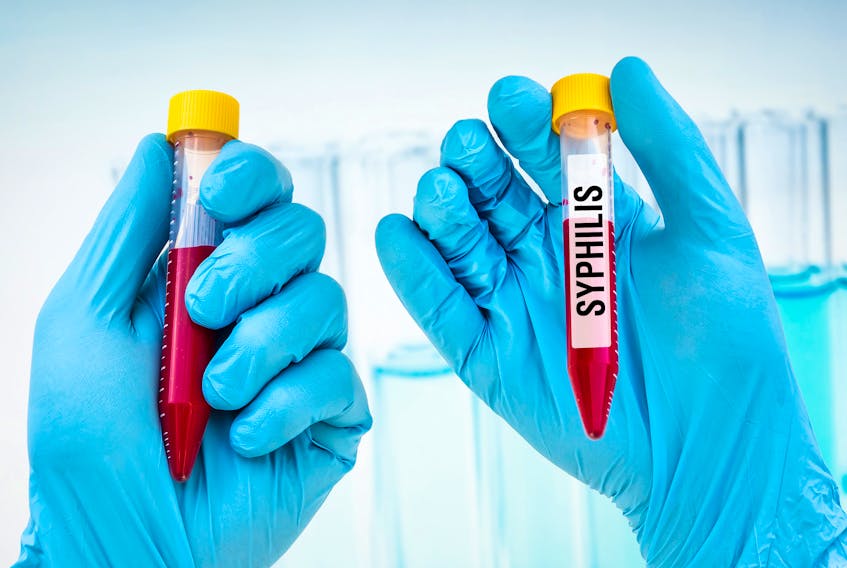A spike in syphilis cases has prompted Nova Scotia public health officials to declare a provincial outbreak.
Preliminary data recorded 82 cases of the sexually transmitted bacterial infection in 2019. That’s up from about 50 cases in 2018 and 38 cases in 2017.
More females contracted syphilis in 2019 — 20 per cent of the total cases — compared to previously years as well, the provincial Health Department said in a news release Monday morning.
Syphilis is a bacterial sexually transmitted infection contracted through unprotected anal, oral or vaginal sex. It can cause serious and permanent damage to the body if untreated.
“Safer sex practices and getting tested for syphilis can help decrease the number of syphilis cases we are seeing in Nova Scotia currently,” Dr. Gaynor Watson-Creed, Nova Scotia’s deputy medical officer of health, said in the news release.
“Knowing your status for sexually transmitted infections, including syphilis, is really important for our health and also the health of others.”
Symptoms of syphilis may first appear 10 to 90 days after a person becomes infected, with the average period of time being 21 days. While some people may not experience any symptoms, syphilis can produce different symptoms at each stage of infection, including:
- an open sore at the point of infection (genital area, anus, mouth or lips)
- flu-like illness
- muscle aches and pains
- fatigue
- a rash on the chest, back, palms of hands and bottoms of feet
Syphilis is treatable with antibiotics. Later stages of syphilis can cause serious impacts to the brain, heart and other organs, or even death.
A syphilis outbreak was declared in the Halifax area in 2009, hitting a peak in 2013 with 84 cases that year. The Public Health Agency of Canada has put a syphilis outbreak investigation co-ordination committee in place to inform surveillance and outbreak control measures across the country, which may inform additional protection measures and recommendations.
For now, Watson-Creed said, it’s most important that people know the signs and symptoms of syphilis, use protection for sexual activity and get tested for syphilis and other STIs if they are at risk.
“Being informed, taking action and protecting yourself are the best steps right now. Please get tested if you think you are at risk.”
In response to the outbreak declaration, the Nova Scotia Health Authority has sent letters to doctors with detailed recommendations on diagnosing and treating syphilis.
"Syphilis is a complex disease – unless you are experienced with clinical presentation, staging, repeat infections, and indeterminate serology (study of body fluids such as blood and semen and saliva), please consult with infectious disease specialists," the letter said.
The letter said the most common risk factor in acquiring syphilis is men having sex with men. Other risk factors include having unprotected sex with multiple partners (vaginal, anal or oral), or having sex with someone who is having unprotected sex with multiple partners.









